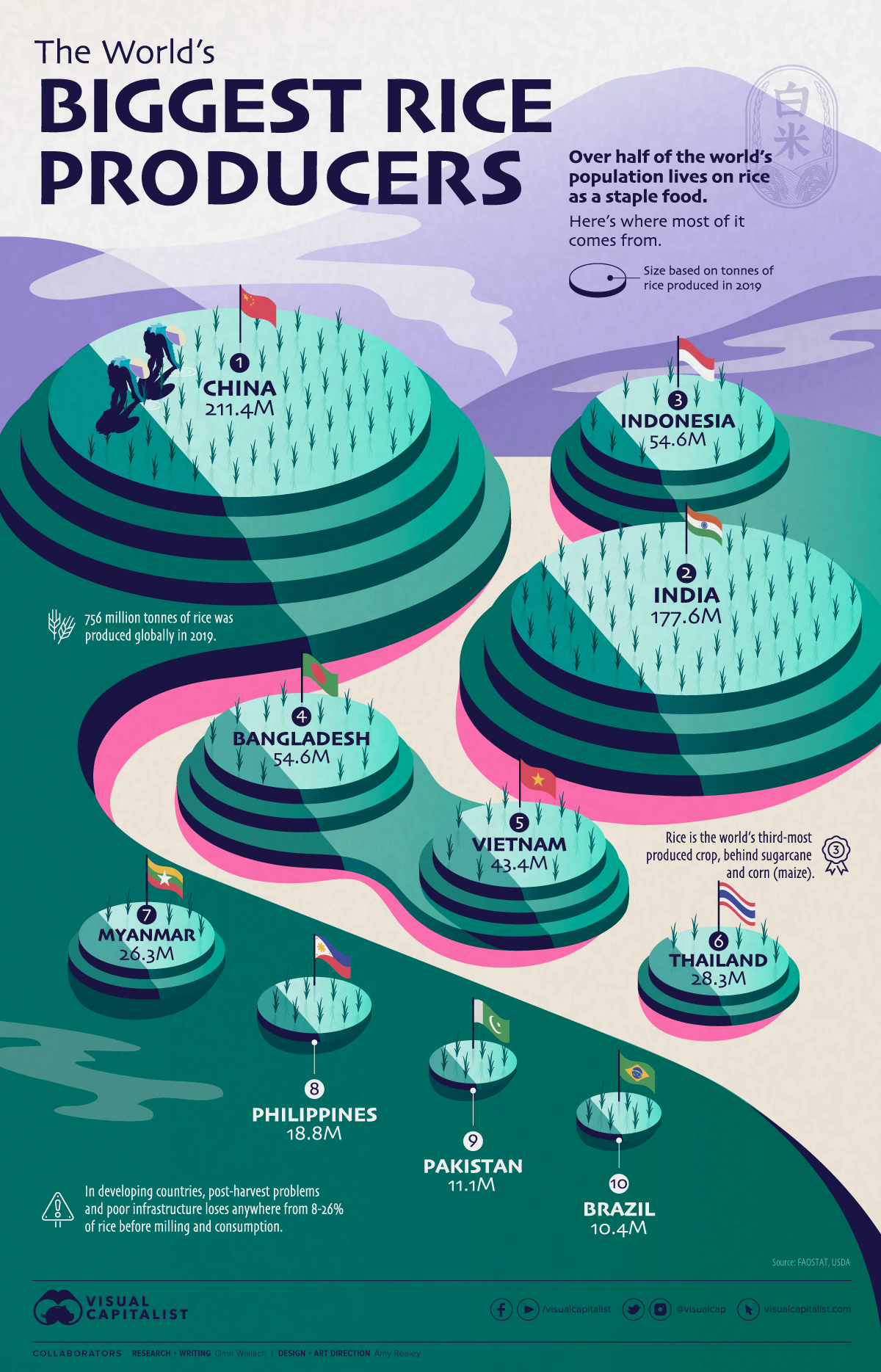Vietnam, Thailand to meet in Oct. about raising rice export prices
Hikes could hit 20%, adding fuel to global inflation
A woman works a rice field in Khon Kaen, Thailand. The country is considering price hikes for rice exports along with Vietnam, another major rice exporter.
© Reuters
YOHEI MURAMATSU and TOMOYA ONISHI, Nikkei staff writersSeptember 16, 2022 20:02 JST
BANGKOK/HANOI -- Vietnam and Thailand, the world's second- and third-largest rice exporters, will hold talks to raise export prices for rice, Nikkei has learned.
Thai Agriculture and Cooperatives Minister Chalermchai Sri-on will visit Vietnam on Oct. 6-7 for talks with Vietnamese Agriculture and Rural Development Minister Le Minh Hoan regarding the countries' agricultural cooperation including rice export prices, Thai government officials said.
Vietnam and Thailand could raise prices by around 20%, sending food prices higher and adding to global inflation amid the Ukraine war.
The two countries agreed in early September to cooperate in raising rice export prices, noting that their rice farmers are unable to cover higher production costs due to soaring costs of fertilizers, agricultural chemicals and fuel, the officials said.
Each country will set up its own working groups to examine specific measures.
Rice prices have been relatively stable in comparison with wheat prices, which have risen sharply since Russia's invasion of Ukraine. But India -- the world's biggest rice exporter -- has imposed a 20% export duty on the shipment of certain types of rice, effective last Friday, to ensure adequate domestic supplies.
In Vietnam, export prices for rice are already starting to increase following India's imposition of the duty.
Export prices of Thai rice stood at $446 per ton in August, up about 7% from a year earlier, while those of Vietnamese rice leveled off at about $385, according to data from the U.N. Food and Agriculture Organization.
Global rice exports totaled 51.63 million tons in 2021, according to the U.S. Department of Agriculture. India accounted for 41% of the total followed by Vietnam and Thailand at around 12% each. While China and the Philippines are the world's main rice importers, Japan also uses imported rice for processed food products.
https://asia.nikkei.com/Economy/Inf...meet-in-Oct.-about-raising-rice-export-prices


